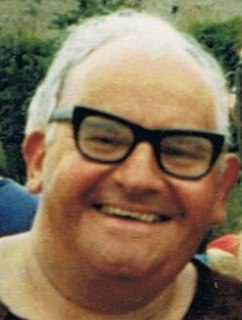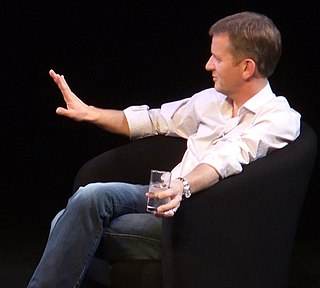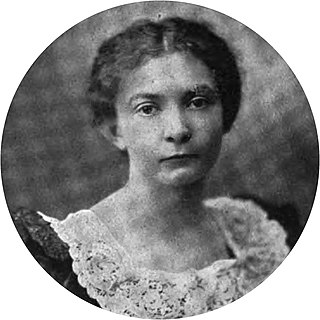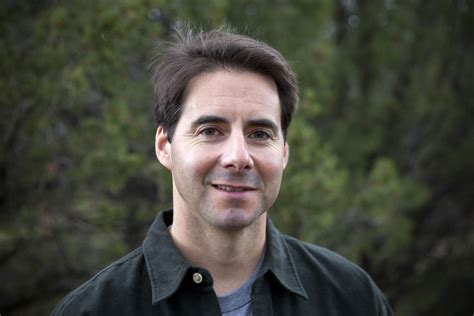A Quote by Douglas Adams
'The difficulty with this conversation,' said Arthur after a sort of pondering look had crawled slowly across his face like a mountaineer negotiating a tricky outcrop, 'is that it's very different from most of the ones I've had of late. Which, as I explained, have mostly been with trees.'
Related Quotes
There was very little about her face and figure that was in any way remarkable, but it was the sort of face which, when animated by conversation or laughter, is completely transformed. She had a lovely disposition, a quick mind and a fondness for the comical. She was always very ready to smile and, since a smile is the most becoming ornament that any lady can wear, she had been known upon occasion to outshine women who were acknowledged beauties in three countries.
When I pointed to him his palms slipped slightly, leaving greasy sweat streaks on the wall, and he hooked his thumbs in his belt. A strange spasm shook him, as if he heard fingernails scrape slate, but as I gazed at him in wonder the tension slowly drained from his face. His lips parted into a timid smile, and our neighbor’s image blurred with my sudden tears. “Hey, Boo,” I said. “Mr. Arthur, honey,” said Atticus, gently correcting me. “Jean Louise, this is Mr. Arthur Radley. I believe he already knows you.
So this is it," said Arthur, "We are going to die." "Yes," said Ford, "except... no! Wait a minute!" He suddenly lunged across the chamber at something behind Arthur's line of vision. "What's this switch?" he cried. "What? Where?" cried Arthur, twisting round. "No, I was only fooling," said Ford, "we are going to die after all.
Arthur Schlesinger, Jr., in a mordant protest written soon after the [1952] election, found the intellectual "in a situation he has not known for a generation." After twenty years of Democratic rule, during which the intellectual had been in the main understood and respected, business had come back into power, bringing with it "the vulgarization which has been the almost invariable consequence of business supremacy.
She was coming. I watched the slight figure grow out of the dusk between the trees, and the darkness in which I had walked of late fell away. The wood that had been so gloomy was a place of sunlight and song; had red roses sprung up around me I had felt no wonder. She came softly and slowly with bent head and hanging arms, not knowing that I was near. I went not to meet her - it was my fancy to have her come to me still - but when she raised her eyes and saw me I fell upon my knees.
After I had been studying with him for two years, Schoenberg said, ‘In order to write music, you must have a feeling for harmony.’ I explained to him that I had no feeling for harmony. He then said that I would always encounter an obstacle, that it would be as though I came to a wall through which I could not pass. I said, ‘In that case I will devote my life to beating my head against that wall.’
The American appetite for loneliness impressed me, and there was something about this solitude that freed conversation. One night at a bar, I met a man, and within five minutes he explained that he had just been released from prison. Another drinker told me that his wife had passed away, and he had recently suffered a heart attack, and now he hoped that he would die within the year. I learned that there's no reliable small talk in America; at any moment a conversation can become personal.
Of course, Sam [Fuller] was like, "No problem," because he treated it like a newspaper deadline. We worked long hours, often very late into the night, in his garage, which had been converted into an office. It was freezing cold outside and there was no heat in the garage, so he had a little space heater over by his side and I had a blanket that he graciously gave me to drape around my shoulders like a Navajo Indian. And he gave me cigars, too, of course.



































